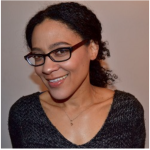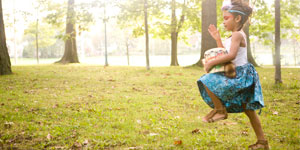School
8 min Read
Unschooling: A step further in self-directed learning

July 23, 2012
School
8 min Read

July 23, 2012

 It’s early winter and I’m a volunteer at the
It’s early winter and I’m a volunteer at the
local elementary school. I have high hopes
of becoming a school teacher and want to
gain some hands-on experience. Inside the
classroom, 28 little children sit in their chairs,
working on their ‘paper cutting skills.’
I glance up from supervising a child when
a most wondrous sight catches my eye: snow
flakes are softly falling outside the window.
Great, fluffy flakes float gently down from
a purple sky. It brings to mind a cherished
snow globe I had as a child. It was a famous
landmark – the Eiffel Tower I think – encased
in a plastic dome. When I shook it, the little
white flakes would descend in a swirling
mass, to land at the bottom. Then I’d do it all
over again. The toy would amaze and amuse
me for hours on end.
It’s a magical world, but the teacher has
a different opinion. She hurries over to the
window where the children are already
gathered to watch the snow fall. Swiftly,
abruptly, she draws the curtains closed.
“The children are getting distracted,” she says.
The suspicions I had been harbouring
about the nature of schooling and how
it might actually prevent learning are
being confirmed in this very classroom.
These curious minds are missing out on
experiencing falling snow. They don’t get to
observe, engage, or be awed by it. Judging by
the looks on their faces, they know they are
being cheated but can’t do anything about it.
Instead, under the teacher’s management,
they must return to their seats and complete
the assignment before the bell rings. At that
point, they will move to the next learning
opportunity that’s been prescribed for them.
My hand hovers uncertainly over my
pregnant belly. Is this what awaits her?
Fast forward a few years and my daughter is
four years old. She’s eager for the world and
she wants it all – right now. She’s memorizing
entire books by the wagon-load;
she’s singing at the top of her
lungs. She’s playing “We Shall
Overcome” on the recorder.
She’s role-playing her favourite
characters – Pooh Bear, the
Paper Bag Princess, Thomas
the Tank Engine. Her two
younger sisters, ages one and
two, are bright-eyed and in a
wild frenzy to catch up with
her. They want to dance like she
does. They mean to climb trees
and build forts, dig up worms,
bake cookies, paint pictures
and ride a tricycle like her.
Two years later, my eldest
daughter is six. She’s making
intricate models with origami.
She’s demanding to see the
universe through a telescope.
She’s outraged that there was
a time when women weren’t
permitted to vote. She’s
passionately playing the role
of Frodo Baggins in the Lord of the Rings – the
book that will shape her sense of fellowship,
fairness and even love, for years to come. Her
sisters aren’t far behind – one is figuring out
how to read, the other never walks by the
piano without sitting down and playing a
piece.
And the feeling I’m getting is a dizzying
fascination and wonderment as they set
the pace. It’s their interests, their passions
that take the lead and drive the learning. I
am amazed by the way they uncover new
meaning or add unexpected dimensions and
surprising twists and turns to projects they’ve
been working on for weeks. I can’t imagine
missing all this. My husband and I make do
with his income so that I can be home for the
short time that we have them.
A few more years pass, and my children
are still not at school. I’m still not a teacher.
But I’m every bit as interested in education.
I’m figuring out how this works. It’s not
about imposing my ideas on them; it’s about
exposing them to as much of the big, wide
world as they can take. It’s about facilitating
opportunities for them to grow in all ways.
Still, it’s tricky. Surely I have to teach them
since they’re homeschooled. I go and buy
curriculum. I check out other people’s kids
and what they know and compare my kids. I
worry whether they’re measuring up.
All the time, the proof is staring me in the
eye. Before me are confident, questioning
children; their sense of adventure and
curiosity remains intact. I do my best not to
hamper it. I chuck the
curriculum. From now
on, I have to teach myself
the art of respectful
listening and observation
of patience and timing.
Especially timing. My
oldest, despite being
literary, didn’t really read
until age eight. “Mom,”
she says. “I’ll read when
I’m ready.” I have to trust
her. I know that were
she in school, her lack of
reading would be cause
for concern. (As it turns
out, by the time she was
12 she had already been
published. At 15, she had
written two books and
published even more
poetry).
As I navigate the waters
of ‘well roundedness’ and
‘socialization,’ I steer clear
of ‘what they should know,’ and ‘what will
the neighbours think?’ I soak up the wisdom
of those who have ploughed the depths of
alternative education – Ivan Illich, John Holt,
Grace Llewellyn, Wendy Priesnitz – and I am
reassured that I am doing okay in this new
territory called Unschooling, a term coined
by John Holt in the ’70s to describe interestbased,
personalized learning.
I read John Taylor Gatto and I am set at
ease, once and for all. Probably the best
known advocate of unschooling today, Gatto
claims that “genius is as cheap as dirt,”
because it really is. Once you start to value
dirt, let go and let grow. He refers to it as
‘open-source learning’; learning is available
everywhere in life and not restricted to
‘places of learning’ – namely schools. Gatto
proclaims with the assurance of a person who
has worked with young people for most of his
adult life, “Nobody can give you an education.
You have to take an education.” And we’re
taking it: the library, the neighbours, the
Internet, the university, museums, the
bookstore, interest groups, grandma and
grandpa.
I joined unschooling groups, both local
and online, for a little support. The children,
with their ferocious appetite for life, need
more; more friends, more community, more
opportunities. We started a radio show called
Radio Free School, created by, for and about
home learners. The show ran for six years
out of the university campus. We interviewed
people from all walks of life doing all kinds
of interesting work – a physicist, a farmer,
a novelist, a belly dancer, an archaeologist
researching DNA who let us hold a twomillion-
year-old piece of poo from an ancient
cave in China.
We spoke with researchers on alternative
education and advocates for natural learning.
We gained confidence as we met adults who
were unschooled and who reassured us that
unschooling works.
Six years later, my older daughters are 13 and
11. “What’s school all about?” they wondered.
“Can we go and see?” They did and they
stayed, leaving just one child at home. It’s
different with one. It’s lonely and somehow
more challenging without having another
child to bounce off. Unschooling changed as
we adapted to the new set-up.
Today, my oldest daughters are in
public school entering Grades 10 and 12.
My youngest has never set foot in a school
building but this fall, she will be joining the
Grade 9 ranks to explore what this school
thing is all about. She assures me she is
happy as an unschooler, but would like to
attend for a semester before returning to
unschooling. She’s a physical type and needs
plenty of exercise. Her ambition is to play
soccer for Canada as well as to work with
dogs. She’s working hard at learning French
because family friends who live in Belgium
have invited her to visit. She likes structure so
we’ve drawn up a daily schedule that includes
maths, poetry, art and Canadian geography.
The learning happens as a result of the
goals, not the other way around. And this
philosophy is still with my other daughters.
Once unschooled, always unschooled.
They call me a radical and I laugh because
I am about as radical as butter. On reflection,
what I’ve tried to do over the years, in the
belief that humans are natural born learners,
is to safeguard those characteristics which
are catalysts to learning and living: curiosity,
a sense of wonder, humour, creativity, the
welcoming of challenge and surprise.
That to me is not radical. Seen from this
perspective, what is radical is school as we
know it: compulsory curriculum dictated, 9
to 3, five days a week, 10 months a year, for
12 years. It’s only been that way for about 150
years, which on the scale of human history,
is pretty recent. Me thinks this could be the
‘great experiment!’
Freelance writer Beatrice Ekwa Ekoko lives in Hamilton,
Ont., with her husband and their three daughters. Her
book, Self-Directed Learning: What it is, how to do it, and
those who have done it, is due to be published this fall.
Radiofreeschool.blogspot.ca is still going strong.
Originally published in ParentsCanada magazine, August/September 2012.